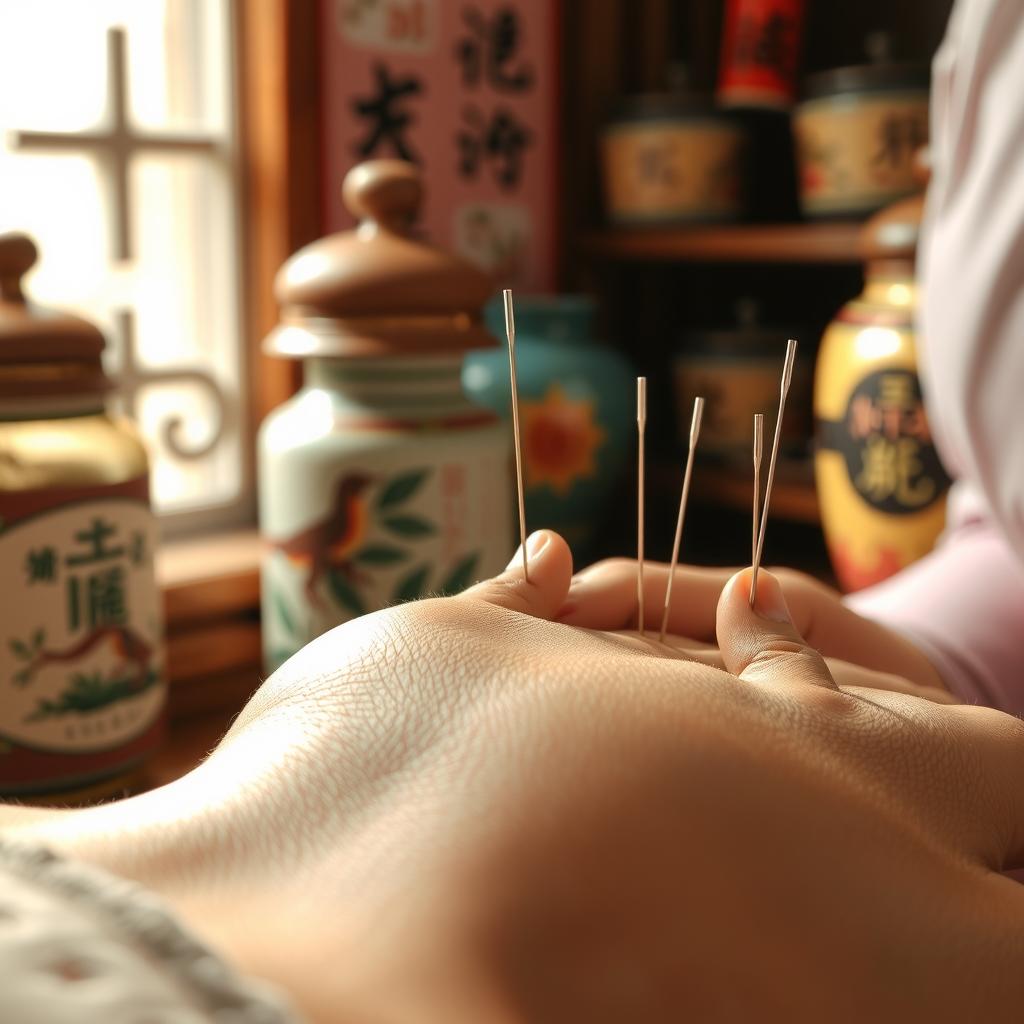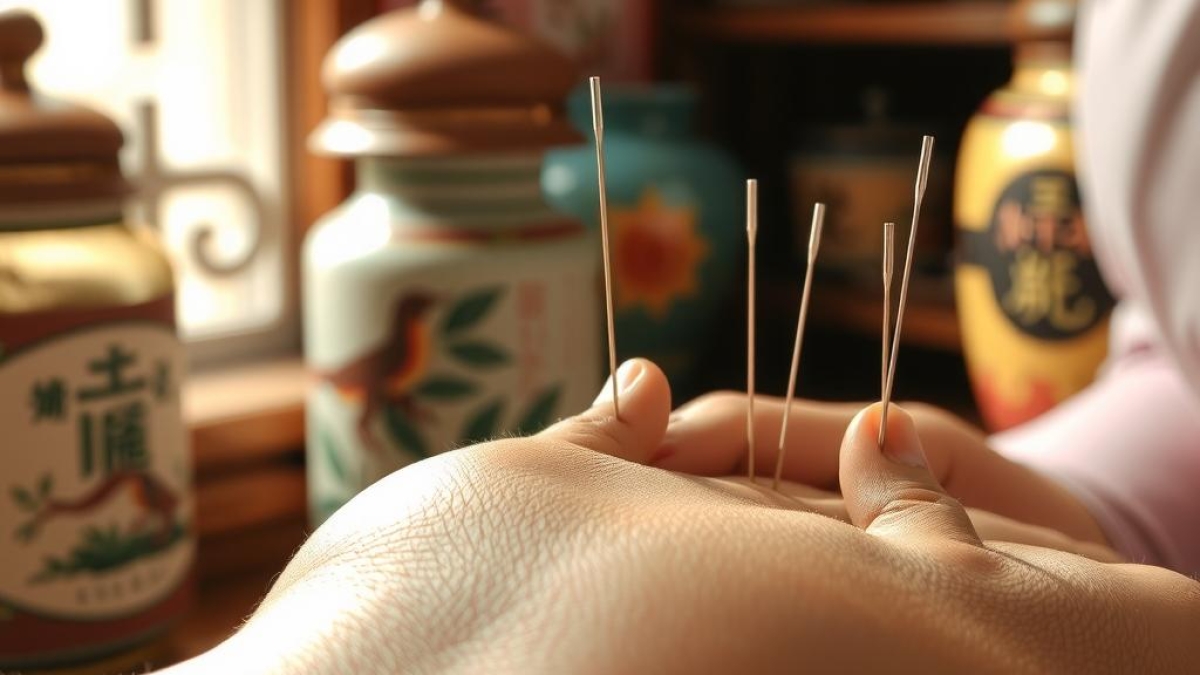In recent years, the quest for effective pain management and holistic health solutions has led many individuals to explore various alternative therapies. Among these options, acupuncture stands out as a practice rooted in centuries of tradition, yet increasingly validated by modern science. Despite its growing popularity, skepticism remains regarding the efficacy of acupuncture treatments. This raises an intriguing question: Can scientific research truly substantiate the claims surrounding acupuncture effectiveness?
As awareness about chronic pain issues escalates globally, so does the demand for reliable evidence supporting alternative treatment modalities. Individuals grappling with persistent discomfort often seek answers beyond conventional medicine’s reach—and here lies the core value of this article. By delving into an array of clinical studies and scientific literature, readers will uncover compelling insights that bolster confidence in acupuncture as a viable option for pain management.
The journey through this exploration not only highlights significant findings but also addresses common misconceptions associated with herbal remedies and traditional practices. Through rigorous investigation into multiple aspects of acupuncture evidence, including its mechanisms and health benefits—such as improved quality of life—it becomes clear that there is more than anecdotal support backing this ancient therapy.
As we transition into the main text, it is essential to recognize how contemporary research continues to illuminate our understanding of acupuncture’s role within integrative healthcare frameworks today. Whether one approaches it from a perspective steeped in tradition or modernity, engaging with credible data can ultimately pave the way toward informed decisions regarding personal wellness journeys. In doing so, individuals may find themselves empowered not just by knowledge but by their ability to embrace alternative therapies like acupuncture for enhanced overall well-being—an approach that harmonizes body and mind while addressing physical ailments effectively.

Key Insights:
-
Title of Insight: The Growing Recognition of Acupuncture in Pain Management
Recent scientific research has increasingly validated the role of acupuncture effectiveness as a viable option for managing various types of pain. Numerous clinical studies indicate that this ancient practice can alleviate discomfort associated with conditions such as arthritis, migraines, and lower back pain. By tapping into specific acupuncture points, patients have reported significant reductions in pain levels, thereby enhancing their overall quality of life. This growing body of evidence supports the integration of acupuncture into conventional healthcare practices. -
Title of Insight: Mechanisms Behind Acupuncture’s Health Benefits
Understanding how alternative therapy like acupuncture works is essential for appreciating its potential benefits. Research suggests that acupuncture may stimulate the release of endorphins and other neurotransmitters, which play crucial roles in regulating pain perception and emotional well-being. These findings underline why many individuals turn to acupuncture not only for physical ailments but also for issues related to anxiety disorders and stress management. As awareness increases about these mechanisms, more people are likely to consider holistic treatment options within their personal health plans. -
Title of Insight: Acupuncture Evidence Supporting Integrated Healthcare Approaches
As healthcare continues evolving toward more integrative models, the accumulating acupuncture evidence offers promising insights into complementary care strategies. Studies show that combining traditional medical treatments with acupuncture effectiveness can lead to improved patient outcomes across various health conditions. This synergy fosters a comprehensive approach where patients benefit from both conventional medicine and alternative therapies tailored to their unique needs—ultimately paving the way for a more holistic view on wellness that acknowledges diverse therapeutic modalities.

Historical Significance of Acupuncture
Unraveling the Ancient Art and Its Modern Applications
Acupuncture, a practice with roots tracing back over 2,500 years in ancient China, represents one of the oldest forms of healthcare still utilized today. Historically, acupuncture was grounded in the philosophical principles of yin and yang and the flow of qi, or vital energy, within the body. This traditional Chinese medicine approach aimed to restore balance and promote healing by stimulating specific points along meridians through fine needles. The historical context reveals its role not only as a therapeutic intervention but also as an integral part of cultural practices that emphasize harmony between physical health and emotional well-being. As modern medicine has evolved, there is a growing acknowledgment among practitioners about acupuncture’s potential effectiveness for various health issues. Research increasingly supports its application in pain management, illustrating how this ancient technique can coexist with contemporary medical practices.
The relevance of acupuncture continues to expand within modern healthcare systems due to significant advancements in scientific research surrounding its efficacy. Clinical studies have revealed that acupuncture may provide substantial relief from conditions such as chronic pain, migraines, arthritis, and even anxiety disorders—underscoring its value as an effective alternative therapy option. With an increasing number of patients seeking holistic treatments beyond conventional pharmaceuticals, practitioners are turning towards evidence-based approaches that incorporate acupuncture into comprehensive treatment plans tailored to individual needs. This shift recognizes both patient preferences for non-invasive interventions and growing concerns regarding side effects associated with traditional medications.
Moreover, prominent institutions are beginning to explore integrating acupuncture evidence into formal medical curricula while encouraging interdisciplinary collaborations between acupuncturists and other healthcare providers. Such efforts aim not only at enhancing understanding but also at promoting patient education on the potential health benefits derived from this age-old practice. As awareness grows around integrative care models that combine conventional medicine with complementary therapies like acupuncture, more individuals find themselves empowered to take charge of their own wellness journeys—fostering a paradigm shift towards preventative care strategies focused on overall quality rather than merely addressing symptoms.
In summary, understanding acupuncture’s historical significance alongside its evolving role in modern medicine provides valuable insights into how ancient wisdom can be harmonized with cutting-edge scientific inquiry to cultivate healthier lifestyles for diverse populations worldwide.
The Evolving Understanding of Acupuncture in Modern Medicine
Investigating the Role of Acupuncture in Pain Management
Recent clinical studies have increasingly highlighted the effectiveness of acupuncture as a viable option for pain management, presenting it not merely as an alternative therapy but as a scientifically supported treatment pathway. Research has demonstrated that acupuncture can significantly alleviate various pain conditions, including chronic back pain, migraines, and arthritis. In one significant randomized controlled trial published in JAMA Internal Medicine, it was found that patients receiving acupuncture reported greater reductions in pain levels compared to those who received conventional treatments or sham acupuncture. This emphasizes the potential role of acupuncture evidence within modern medical practices aimed at enhancing overall health outcomes.
The underlying mechanisms by which acupuncture exerts its effects are still being explored; however, emerging theories suggest it may modulate neurobiological pathways associated with pain perception and inflammation. Neurotransmitters such as endorphins and serotonin may be released during treatment sessions, contributing to both immediate relief and long-term improvements in well-being. Additionally, recent meta-analyses indicate that integrating acupuncture into standard care protocols can lead to better patient satisfaction scores due to its holistic approach towards managing physical discomfort while also addressing emotional stressors.
Clinical Evidence Supporting Acupuncture’s Benefits
A Closer Look at Recent Findings
Clinical trials focusing on acupuncture effectiveness reveal encouraging results across diverse populations and settings. For example, a systematic review involving over 20 studies confirmed that patients undergoing regular acupuncture sessions experienced marked improvements not only in their specific painful conditions but also in their overall quality of life metrics evaluated through standardized questionnaires. This corroborates the notion that holistic treatments, like acupuncture, target more than just localized symptoms; they promote comprehensive health benefits encompassing mental wellness.
Moreover, studies investigating long-term outcomes have shown sustained benefits even after cessation of treatment—a hallmark feature differentiating effective therapies from transient solutions. Patients often report lasting decreases in anxiety levels alongside diminished physical discomfort post-acupuncture interventions. Such findings underscore how incorporating this ancient practice into contemporary healthcare frameworks holds promise for effectively managing complex cases where conventional medications might fall short or present adverse effects.
Integrative Approaches: Combining Techniques for Optimal Results
Merging Traditional Practices with Modern Science
As healthcare evolves towards integrative models emphasizing patient-centered care strategies, there is growing interest among practitioners to incorporate alternative therapies like acupuncture alongside traditional medical approaches. This multidisciplinary framework not only enhances therapeutic efficacy but also fosters collaboration between acupuncturists and mainstream medical professionals—ultimately providing more comprehensive treatment options for patients suffering from multifaceted issues related to chronic pain.
Several hospitals now offer integrated services where licensed acupuncturists work closely with physicians to develop tailored management plans based on individual needs and preferences. By doing so, they combine pharmacological methods with non-invasive procedures like needle placement aimed at restoring balance within bodily systems affected by stress or injury-related dysfunctions—allowing a broader spectrum of healing opportunities through personalized medicine principles grounded on empirical research findings supporting the practice’s legitimacy.
Addressing Common Misconceptions about Acupuncture
Bridging Gaps Between Perception and Reality
Despite considerable scientific backing regarding its efficacy for various ailments—including numerous chronic conditions—the perception surrounding acupuncture evidence remains mixed among certain demographics largely due to misinformation or lack thereof concerning what this practice entails fully entails.. While some individuals remain skeptical about relying solely upon needles inserted strategically into points along meridian lines traced thousands of years ago within Traditional Chinese Medicine (TCM), current clinical data serves as powerful testimonials attesting towards real-world impacts observed globally across diverse cultures adopting these methodologies successfully today.
Educational initiatives aimed at demystifying concepts inherent within TCM should be prioritized moving forward so potential users understand precisely how engaging with alternative modalities contributes positively toward enhancing their journey toward recovery without compromising safety measures traditionally emphasized throughout Western medicinal paradigms—thereby fostering informed decision-making processes benefitting all stakeholders involved ultimately bridging gaps between preconceived notions versus actual experiences validated through rigorous exploration conducted rigorously examining outcomes achieved via fulfilling objectives rooted deeply inside each unique individual’s quest seeking balance amidst life’s myriad challenges encountered daily thereafter reshaping narratives previously held prior shedding light onto transformative possibilities available therein illuminating brighter paths ahead!
Bridging Tradition with Modern Evidence
The Synergy of Acupuncture and Conventional Medicine
Integrating acupuncture into contemporary healthcare systems offers a unique opportunity to enhance patient outcomes through a holistic treatment approach. Traditional practices, such as acupuncture, have been utilized for centuries in various cultures, primarily focusing on restoring balance within the body. Recent advancements in scientific research have begun to validate these ancient methods, demonstrating that acupuncture can effectively complement conventional treatments. Studies indicate that patients experiencing chronic pain conditions often derive significant benefits from acupuncture effectiveness, showing improvements not only in pain relief but also in overall well-being. This integration of alternative therapy helps bridge the gap between time-honored traditions and modern evidence-based practices, allowing healthcare providers to adopt more comprehensive health solutions.
Pain Management Through Acupuncture
Exploring Clinical Efficacy
The role of acupuncture in pain management is increasingly supported by clinical studies that highlight its effectiveness across various medical conditions. Research has demonstrated that this practice can significantly alleviate symptoms associated with ailments like arthritis, migraines, and lower back pain. By stimulating specific points on the body using thin needles, acupuncture promotes blood flow and stimulates the release of endorphins – natural chemicals produced by the body to relieve stress and reduce pain sensations. Numerous systematic reviews underscore how integrating acupuncture into standard care protocols enhances patient recovery times while minimizing reliance on pharmaceuticals for pain management. As healthcare continues to evolve towards more personalized approaches, practitioners are recognizing the value of incorporating traditional techniques alongside established medical interventions.
Holistic Health Solutions
Addressing Mind-Body Connection
Acupuncture not only addresses physical ailments but also emphasizes mental wellness by fostering a mind-body connection crucial for holistic health solutions. Many individuals seeking treatment report improved emotional states alongside their physical healing journeys; contributing factors include reduced anxiety levels and enhanced sleep quality due to regular sessions focused on balancing energy pathways within the body. Furthermore, emerging studies highlight acupuncture’s ability to modulate neurological responses related to stress – an aspect critical in our fast-paced society where mental health concerns are prevalent among populations worldwide. Emphasizing this interconnectedness reinforces why it is vital for healthcare providers today to consider health benefits beyond mere symptom resolution when advocating for integrative therapies.
Scientific Validation of Acupuncture
The Growing Body of Evidence
As skepticism surrounding alternative therapies gradually diminishes among healthcare professionals, scientific validation plays an essential role in promoting acceptance of modalities like acupuncture. A wealth of peer-reviewed literature now exists showcasing robust evidence supporting its application across diverse clinical settings—from oncology supportive care reducing chemotherapy side effects through symptom relief strategies utilizing needle insertion techniques—to rehabilitation programs aiding recovery after surgical interventions or injuries sustained during sports activities alike.. These findings emphasize how blending traditional wisdom with rigorous scientific inquiry opens avenues toward developing rich therapeutic landscapes catering specifically towards individual needs—ultimately leading us closer toward achieving optimal patient-centered outcomes while respecting cultural heritage embedded within practices themselves.
Future Directions: Integrative Care Models
Shaping Tomorrow’s Healthcare Landscape
Looking ahead at future directions regarding integrative care models reveals immense potential for further collaboration between acupuncturists and conventional medicine practitioners alike—creating interdisciplinary teams capable not only addressing complex medical issues holistically but ensuring seamless continuity throughout each patient’s journey back towards full-functionality post-disruption caused either injury or chronic illness . Such partnerships foster environments where shared knowledge enhances decision-making processes around treatment plans tailored uniquely according preferences seen most effective evidenced-based results observed thus far! Overall embracing both ancient wisdom coupled solidified backing aligns perfectly onto contemporary goals aimed prioritizing overall wellness aligning seamlessly bridging gaps found existing paradigms already set forth transforming landscape ultimately benefiting all those involved facilitating profound transformations taking place right before eyes unfolding every day!
Frequently Asked Questions:
Q: What is acupuncture and how does it work?
A: Acupuncture is an ancient practice rooted in traditional Chinese medicine that involves the insertion of fine needles into specific points on the body. This method aims to stimulate the body’s natural healing processes, potentially leading to improved pain management and overall wellness. Recent scientific research has shown that acupuncture may help modulate pain signals in the nervous system and promote blood circulation, thereby facilitating various health benefits.
Q: Is there scientific evidence supporting the effectiveness of acupuncture?
A: Yes, numerous clinical studies have been conducted to investigate the effectiveness of acupuncture. These studies indicate that this form of alternative therapy can provide significant relief for conditions like chronic pain, migraines, and anxiety disorders. The mounting body of acupuncture evidence not only supports its efficacy but also underscores its role as a viable option for those seeking complementary approaches to health care.
Q: Can acupuncture be used alongside conventional treatments?
A: Absolutely. Many healthcare professionals advocate for an integrated approach where acupuncture complements conventional treatments. By incorporating this holistic treatment modality into a broader therapeutic strategy, patients may experience enhanced outcomes in managing their symptoms effectively. This synergy between traditional methods and alternative therapies highlights why understanding acupuncture effectiveness is essential for individuals exploring comprehensive health solutions.

Add a Comment